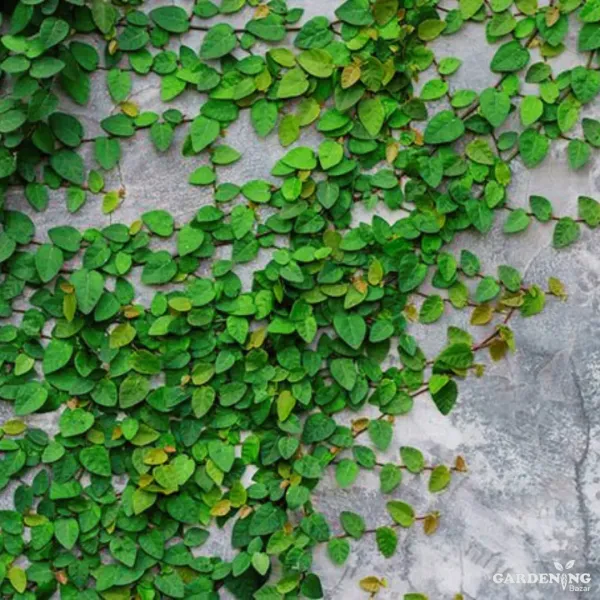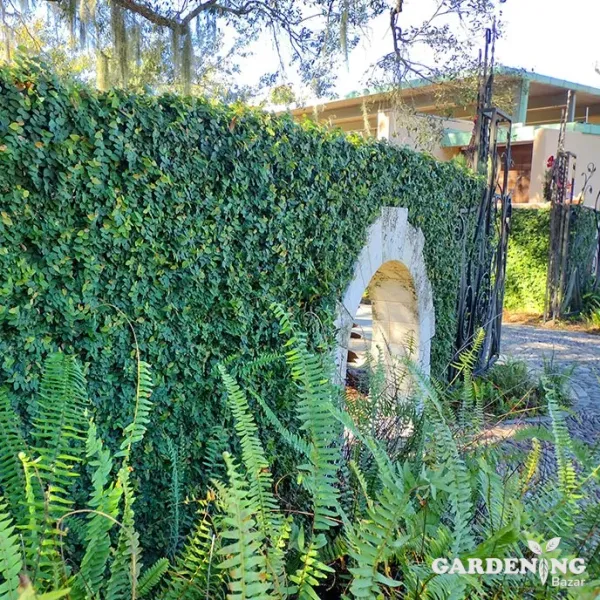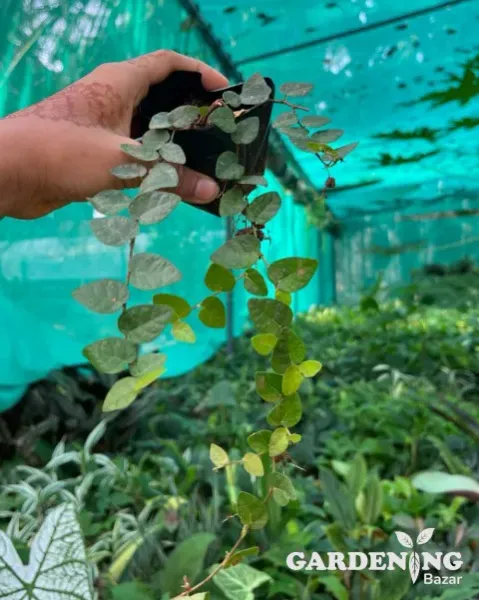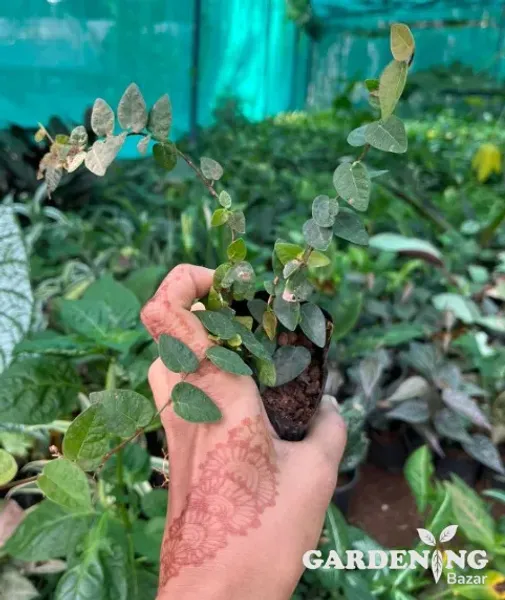Creeping fig
By HomelyplantsN/A
Save 280 Rupees
₹ 319
₹ 599.00 47% offThis item is not active. Get notified when it comes active
Product Description
Ficus pumila, commonly known as the creeping fig or climbing fig, is a species of flowering plant in the mulberry family, native to East Asia and naturalized in parts of the southeastern and south-central United States. It is also found in cultivation as a houseplant.
Additional Details
| Container type | Jiffy bag |
| Quantity | 1 |
| Sunlight | Provide bright, indirect sunlight for your Dischidia plant, avoiding direct sun exposure. Aim for around 6 to 8 hours of filtered light per day for optimal growth. |
| Leaf | Dischidia plants are known for their unique and often succulent-like leaves, which vary in shape and texture depending on the species. |
| Pot size | Opt for a well-draining pot that allows the plant's roots to breathe. A small to medium-sized pot is generally suitable, depending on the size of the plant. |
| Watering | Dischidia plants prefer slightly moist but well-draining soil. Allow the top inch of soil to dry out between waterings, and be cautious not to overwater, as this can lead to root rot. |
| Temperature | Dischidia plants thrive in warm temperatures ranging from 60°F to 80°F (15°C to 27°C). They prefer moderate to high humidity levels. |
| Fertilizer | Feed your Dischidia plant with a balanced liquid fertilizer diluted to half-strength during the growing season (spring and summer). Reduce fertilization in fall and winter when growth slows down. |
| Pests and Disease | Dischidia plants are generally resistant to pests and diseases, but they may occasionally attract common houseplant pests like aphids, mealybugs, or spider mites. Inspect your plant regularly for signs of infestation and treat promptly with neem oil or insecticidal soap if necessary. Ensure good airflow around the plant to prevent fungal issues like powdery mildew. |
| Seller Name | Homelyplants |
Questions
Have doubts regarding this product?
Similar Products







